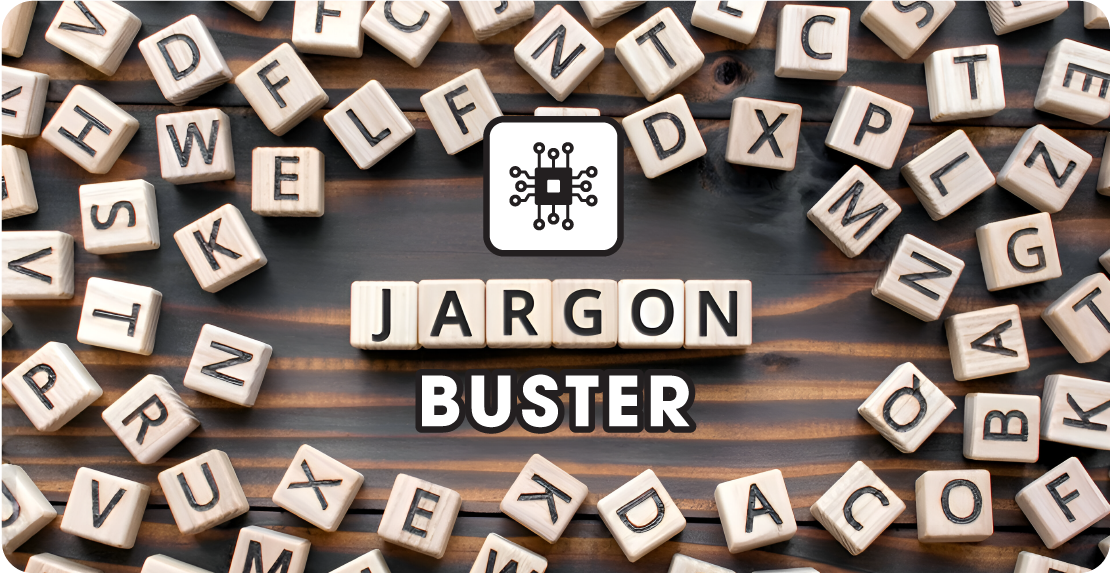Jargon Buster: Demystifying IT Terminology
Technological Innovation Edition

Jargon Buster
The jargon buster aims to give simple, plain English explanations of typical words and/or phrases used in security and cybersecurity, making it easier to stay informed.
Agile Methodology:
An approach to software development that emphasises flexibility, and collaboration. It involves breaking projects into smaller parts (sprints) for quicker development and adaptation to changes.
Disruptive Technology:
An innovation that significantly alters or disrupts existing markets, technologies, or industries. It often replaces older technologies or creates entirely new markets.
Digital Transformation:
The integration of digital technology into all aspects of a business, fundamentally changing how it operates and delivers value to customers. It involves adopting new technologies to improve processes and customer experiences. This often involves replacing paper-based forms and processes.
Cloud Computing:
The delivery of computing services (such as servers, storage, databases, networking, software, and more) over the internet (‘the cloud’). It offers flexibility, scalability and cost-effectiveness compared to traditional on-premises infrastructure.
Internet of Things (IoT):
The network of physical devices embedded with sensors, software, and connectivity that enables them to collect and exchange data. IoT devices can range from everyday objects to industrial tools, all connected to the internet.
Artificial Intelligence (AI):
The simulation of human intelligence processes by machines, typically through tasks like learning, problem-solving, speech recognition, and decision-making. Machine Learning (ML) and neural networks are subsets of AI.
DevOps:
A culture and set of practices that combine software development (Dev) and IT operations (Ops). It aims to shorten the development life cycle and provide continuous delivery with high software quality.
Big Data:
Large volumes of structured and unstructured data that are difficult to process using traditional database and software techniques. It involves extracting valuable insights from these vast datasets.
Cyber Threat Intelligence (CTI):
Information about potential cybersecurity threats, including tactics employed by malicious actors.
Cybersecurity:
The practice of protecting systems, networks, and data from digital attacks. It includes various measures, tools, and technologies to prevent unauthorized access, data breaches, and cyber threats.
Want to learn more about our services?
Other Articles & Blogs
Affordable VoIP Solutions for Small Businesses
Affordable VoIP Solutions for Small BusinessesClear, reliable communication is at the heart of every successful business. Whether you’re speaking with customers, liaising with suppliers, or collaborating internally, the right system should empower your team, not hold...
Lessons in Software Implementation: What the UK Digital ID Project Can Teach Us
Lessons in Software Implementation: What the UK Digital ID Project Can Teach UsThe UK’s government’s proposed Digital ID scheme - “BritCard” - is one of the most ambitious software and systems projects in recent years. While the headlines focus on privacy and public...
Unity News: Tech Shop Officially Launches
Unity News: Tech Shop Officially LaunchesOn 15th August, we hit a huge milestone at Unity with the launch of Unity Tech Shop, our brand new e-commerce platform giving partners instant access to 100,000+ products from 80+ trusted brands. From Dell and HP to Cisco and...



